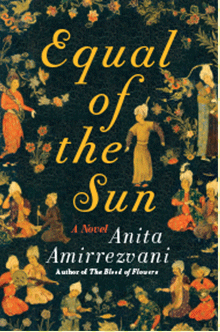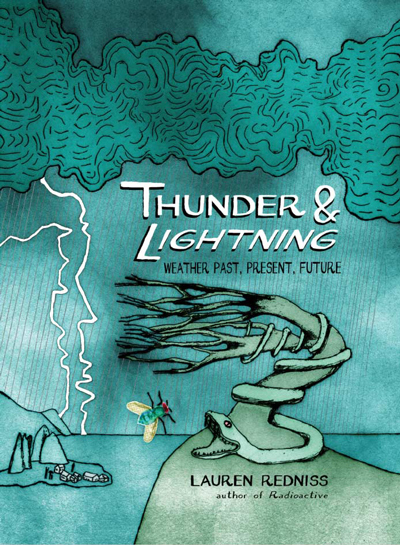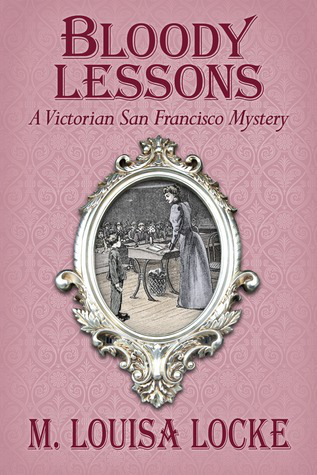Hello, everyone! With the frenzy surrounding the #MeToo and #TimesUp movements, I’d like to add my contribution to the discussion of under-appreciated female powerhouses by reviewing Anita Amirrezvani’s Equal of the Sun, a historical novel about Pari Khan Khanoom, a Safavid princess in 1500s Iran. In her debut novel The Blood of Flowers (my review here), Amirrezvani brought the world of 17th century Iran to life through her story of an anonymous female carpet maker who is forced to enter into a shameful temporary marriage. She explored the everyday powerlessness faced by Persian women, but also highlighted the craftsmanship of female artisans who to this day remain anonymous. In her second novel Equal of the Sun, Amirrezvani goes back in time to the rule of Shah Tahmasp I and the cut-throat power struggle that ensued after his death. Her novel takes the themes of her first book and probes them further, showing us the rise and fall of a princess who is destined to be a ruler, but prohibited by her sex. Exhilarating and penned with exquisite prose, Amirrezvani paints a novel of a royal court and a nation in turmoil, which upon further examination, isn’t so different from the political struggles Americans and other countries around the globe face today.
 Can we talk about how beautiful this cover is?
Can we talk about how beautiful this cover is?
Synopsis: After the execution of his father for treason, noble Javaher becomes a eunuch so that he can enter the service of the Shah Tahmasp’s harem and win back honor for his family. Once there, he is hired by Pari, the Shah’s favorite daughter and his most esteemed advisor. The two develop a close relationship and Javaher soon becomes Pari’s trusted vizier. But everything changes after the unexpected death of the Shah, who left no heir. A struggle for power begins, with Pari supporting her exiled brother Isma’il, and after much bloodshed, he is installed on the throne. But his rule is not what Pari, nor the rest of Iran, expected. Determined to be a radically different ruler than the father he hated, Isma’il upends the courts with murders, betrayals, and indifference towards Pari. With the fate of Iran on the line, Pari and Javaher undertake a dangerous endeavor to depose Isma’il, which leads to consequences neither of them intended.
In order to speak my mind on this book, I need to discuss the whole story, so if you want a spoiler free review, I’d advise you to stop reading now and get this book from the library ASAP!

My take: Make no mistake, even though the novel is told from the perspective of a man, Equal of the Sun is about women. As a eunuch (if you don’t know what that is, I advise you to research it because this blog is not the right place to explain), Javaher lives in a world of women that other men aren’t allowed to enter or even glimpse. But as a eunuch who was cut after puberty, he appreciates women for their sensuality as well as for their intelligence and strength of character. Thus, as a man essentially living between two worlds, he is the best narrator we could have to experience the inner world of the harem and the outer world of the court.
By having Javaher as her narrator, the audience gets to know Pari in the same way he does: as a woman to be revered, but also a woman to sympathize with. She is brilliant, persuasive, ruthless, and beautiful, but Javaher never idealizes her. Even though, as Javaher says at the end of the novel, that Pari is “the lieutenant of my life, the khan of angels, [and] the equal of the sun,” he never idealizes her. That’s the novel’s foundation, for to idealize a female character is to dehumanize her. Javaher, and by default, Amirrezvani, never make that mistake.
Equal of the Sun is more plot driven than character driven, which makes the novel very exciting to read. I’ve read some reviews that say it has a slow beginning, but I disagree. Almost right away we are thrown into the intrigue of court life, and after the Shah’s death, the events move at breakneck pace. At times, the events in the novel seem unbelievable, but they’re all historically factual, though some characters are invented for the sake of the novel. It was distressing for me to read of the many executions ordered by Isma’il (at one point he has executed almost Pari’s entire family for threatening his claim to the throne, as well as a dozen other royal men), but it was also illuminating to witness the insanity of the Safavi court. We might think that Trump’s White House is unstable because of all of the officials who come and go, but in Pari’s day, the Shah didn’t have to dismiss his advisers, he could just kill them. And that went for anyone he disliked.
Amirrezvani isn’t trying to say that the the government of the Iranian court was automatically evil because of the autocracy of the Shah, but she does try to point out that even in a role that is supposedly God-given, experience and natural acumen are crucial to success. There’s a tense conflict between Javaher’s desire to depose the Shah (through poison) and his belief that to depose the Shah is to violate God’s ordainment. As a modern reader, it might be frustrating to watch unqualified leaders like Isma’il and then Mohammad take the throne when Pari deserves it far more, but we have no choice. We are just like Pari, who despite her machinations, political skill, and her royal farr (like what King Arthur had when he pulled the sword from the stone), still ends up murdered by her own brother after he takes the throne. I was shocked and disgusted by this turn of events, but as one character Khoudenet says, “that is what happens when you act like a man.”
I find it interesting that Pari was murdered about 40 years after Anne Boleyn’s execution. Two women in their prime executed for daring to interfere in politics and daring to assume power. As Sultanam, Isma’il’s mother says in the novel, “if [Pari] hadn’t been so powerful, they would have sent her into exile. She terrified them.” The same might be said for Anne Boleyn. As a character, Pari bursts from the page, but as a historical symbol, she is like a firebrand.
I’m not trying to make this political, but I can’t help but see similarities between Pari’s struggles and the challenges that American women face in the workplace and in politics. Sexual harassment, silencing, the rule of men who would rather use terror and violence to get their way than to respect their female co-workers as equals. Pari had to fight against hundreds of years of male rule and a society designed to keep her from power, but still she spoke out for what was right, and in the end, she was killed for it. Only now are women who speak out against unfair treatment finally being heard, and that’s only because the #MeToo movement forced the media to pay attention. Who knows how long that will last, and when exactly the tables will turn? Actresses can wear black to the Golden Globes and start initiatives to combat gender inequality, but that doesn’t mean the status quo will change without a fierce fight. So if you’re looking for a book to invigorate you, I suggest Equal of the Sun. It’s tragic, frustrating, and empowering, all at once. Read it because we need to change. And read it because Pari, and her story, no matter how fictionalized, needs to be heard.
 An alleged painting of Pari
Advertisements
Share this:
An alleged painting of Pari
Advertisements
Share this:





